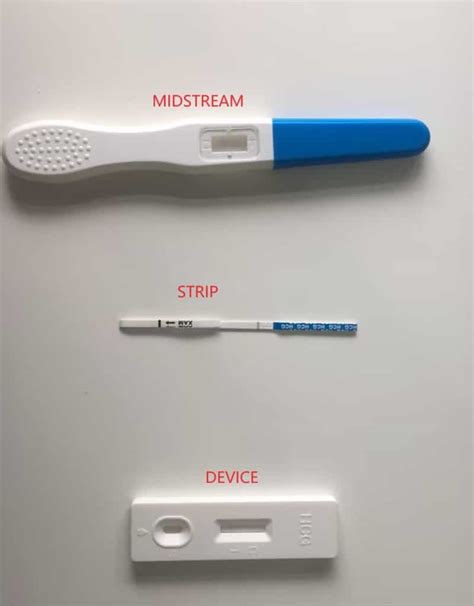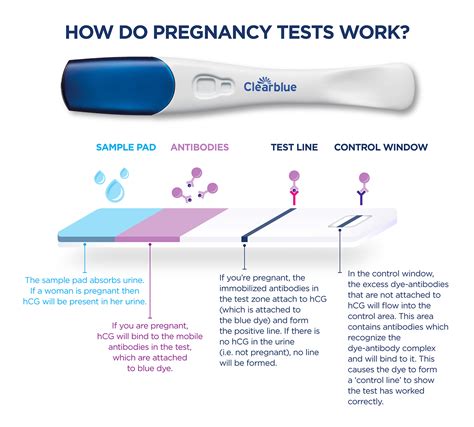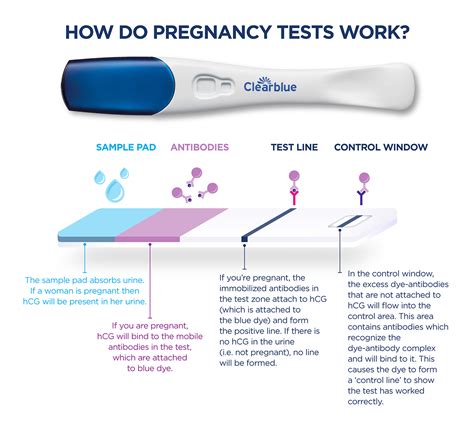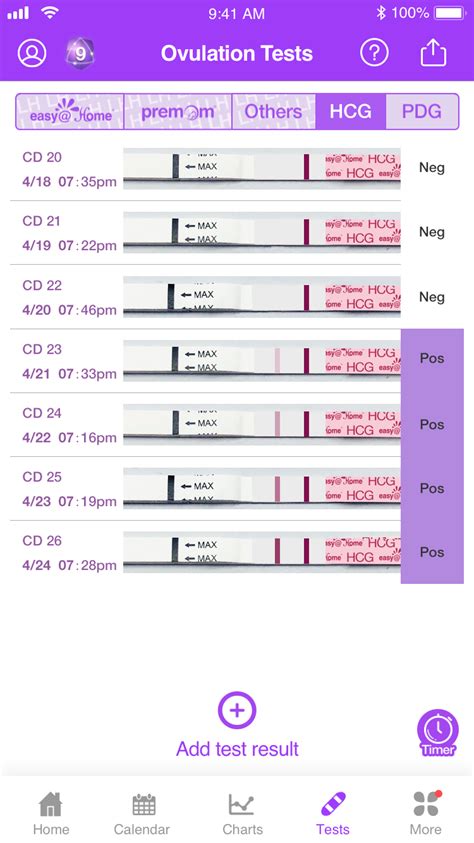Intro
Discover the ultimate Hcg Pregnancy Test Guide, covering hCG levels, early detection, and accurate results, with tips on sensitivity, timing, and interpreting test strips for a reliable pregnancy confirmation.
The journey to parenthood can be an exciting and anxious time, filled with anticipation and uncertainty. For many, the first step in confirming a pregnancy is taking a pregnancy test. Among the various types of pregnancy tests available, the HCG pregnancy test stands out for its accuracy and reliability. Understanding how HCG pregnancy tests work, their benefits, and how to interpret the results can empower individuals with the knowledge they need during this significant life event.
Pregnancy tests detect the presence of the human chorionic gonadotropin (HCG) hormone, which is produced by the placenta shortly after a fertilized egg attaches to the uterine lining. The level of HCG in the blood and urine increases rapidly during early pregnancy, making it a reliable marker for detecting pregnancy. The HCG pregnancy test can be performed using either blood or urine samples, each having its own set of advantages and specific uses.
As individuals navigate the process of trying to conceive, understanding the intricacies of HCG and its role in pregnancy can provide valuable insights. From the earliest signs of pregnancy to the various methods of testing, being informed can help manage expectations and make the experience less daunting. Moreover, recognizing the importance of timing and the factors that can influence test results can significantly impact the accuracy of the HCG pregnancy test.
HCG Pregnancy Test Basics

The HCG pregnancy test is fundamentally based on the detection of the HCG hormone. This hormone is crucial for maintaining pregnancy and is produced by the developing embryo after conception and later by the placental component syncytiotrophoblast. The test can be administered in a clinical setting through a blood test or at home using a urine test kit. Blood tests, also known as beta HCG tests, can detect pregnancy earlier than urine tests because they can measure the exact levels of HCG in the blood, which starts to rise as early as 6-8 days post-ovulation.
Types of HCG Tests
The two primary types of HCG tests are blood tests and urine tests. Blood tests are more sensitive and can detect lower levels of HCG, making them capable of confirming pregnancy earlier than urine tests. Urine tests, on the other hand, are less invasive, more convenient, and can be performed at home, making them a popular choice for initial pregnancy testing.How HCG Pregnancy Tests Work

The mechanism behind HCG pregnancy tests involves the reaction between the HCG hormone present in the urine or blood and the antibodies against HCG on the test strip. In a urine test, a sample of urine is placed on the test strip, and if HCG is present, it binds to the antibodies, causing a color change that indicates a positive result. Blood tests measure the concentration of HCG in the blood, which can not only confirm pregnancy but also monitor its progression.
Interpreting HCG Test Results
Interpreting the results of an HCG pregnancy test can be straightforward for urine tests, with a positive result indicating pregnancy and a negative result suggesting that the individual is not pregnant or that the test was taken too early. However, understanding the results of a blood test requires more insight, as the levels of HCG can provide valuable information about the health and progression of the pregnancy.Benefits of HCG Pregnancy Tests

The benefits of HCG pregnancy tests are numerous. They offer an early and accurate confirmation of pregnancy, which is crucial for prenatal care and monitoring the health of both the mother and the fetus. Early detection also allows for the identification of potential complications, enabling timely intervention. Moreover, the convenience and privacy of at-home urine tests make them an attractive option for many, reducing anxiety and providing immediate results.
Factors Influencing HCG Test Results
Several factors can influence the accuracy of HCG test results, including the timing of the test, the concentration of HCG in the sample, and the sensitivity of the test itself. Understanding these factors is essential for interpreting results correctly and avoiding false negatives or false positives. For instance, taking a test too early or using a test that is not sensitive enough can lead to inaccurate results.Practical Considerations for HCG Pregnancy Tests

Practically, individuals should consider the timing of the test, ensuring it is taken when HCG levels are sufficiently high to be detected. It's also important to follow the test instructions carefully and to understand that factors such as hydration levels and the presence of certain medications can affect urine test results. For blood tests, timing is less of an issue due to their higher sensitivity, but they require a visit to a healthcare provider, which may not be as convenient for everyone.
Tips for Taking an HCG Pregnancy Test
- **Timing is Everything**: Wait until the day of your expected period or later to take the test for the most accurate results. - **Follow Instructions**: Read and follow the test instructions carefully to avoid user error. - **Use First-Morning Urine**: For urine tests, using the first urine of the day can provide the most concentrated sample and the best chance of detecting HCG. - **Stay Hydrated but Not Overhydrated**: Drinking too much water can dilute the HCG in your urine, potentially leading to a false negative.Common Concerns and Misconceptions

There are several common concerns and misconceptions surrounding HCG pregnancy tests. One of the most prevalent is the belief that HCG tests can provide false positives due to certain medications or medical conditions. While this is true in some cases, the likelihood is relatively low with modern tests. Another concern is the variability in HCG levels among pregnancies, which can lead to confusion about test results and the health of the pregnancy.
Addressing Concerns and Misconceptions
Addressing these concerns requires a clear understanding of how HCG tests work and the factors that can influence results. Consulting with a healthcare provider can provide personalized guidance and reassurance, especially for individuals with specific concerns or who are experiencing a high-risk pregnancy.Conclusion and Next Steps

In conclusion, HCG pregnancy tests offer a reliable means of confirming pregnancy. By understanding the basics of these tests, their benefits, and the practical considerations involved, individuals can navigate the process of pregnancy testing with confidence. Whether using a urine test at home or undergoing a blood test in a clinical setting, being informed about HCG and its role in pregnancy can make a significant difference in the journey to parenthood.
For those who have received a positive result, the next steps typically involve scheduling a prenatal appointment with a healthcare provider to begin monitoring the pregnancy and ensuring the health of both the mother and the fetus. This is an exciting time, filled with anticipation and preparation for the arrival of the baby.
We invite you to share your experiences or questions about HCG pregnancy tests in the comments below. Your insights can help others who are going through similar journeys, providing a supportive community and valuable resources for those seeking information on pregnancy and prenatal care.
How early can an HCG pregnancy test detect pregnancy?
+HCG pregnancy tests can detect pregnancy as early as 6-8 days post-ovulation with a blood test and about 10-14 days post-ovulation with a urine test, though this can vary depending on the sensitivity of the test and individual factors.
What can cause a false negative on an HCG pregnancy test?
+A false negative can occur if the test is taken too early, the test is not sensitive enough, or if the individual is not producing enough HCG. Additionally, factors like excessive fluid intake can dilute the urine, potentially leading to a false negative.
How accurate are home pregnancy tests compared to blood tests?
+Home pregnancy tests are generally very accurate when used correctly, with most claiming accuracy rates of 99% or higher when taken after a missed period. However, blood tests can detect pregnancy earlier and provide a quantitative measure of HCG levels, making them more accurate for early detection and monitoring.
